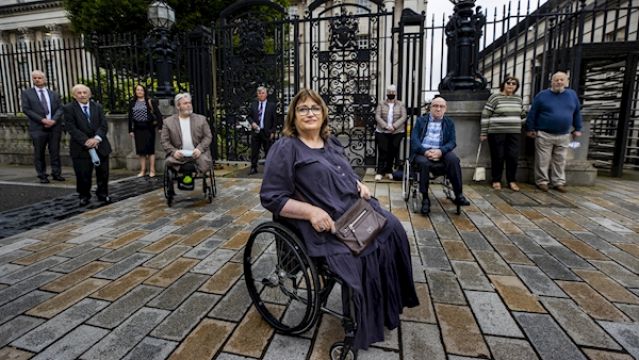Naomi Long said it is “regrettable” that victims had to go to court following delays in the implementation of the scheme, which was passed by MPs at Westminster last year.
There has been political disagreement over whether anyone convicted of inflicting serious harm during the Troubles should qualify for payments, and over who should fund the scheme.
Ms Long said her department is “not the best placed” to administer the scheme but that she felt morally obliged to offer to take it on.
“Given the complexity of the work that has to be done, we don’t already have a system that does, for example, a monthly payment, so that’s something we’re going to have to develop,” she told the BBC.
“But I felt that, out of an obligation and a moral duty to try to see this move forward, it was important to step up and offer to get this work done, and I am now very pleased that the department will be taking this forward.
“There are still a lot of issues that have to be resolved in terms of the long-term finance, but I think that those are issues that we can work together on in parallel with the work of developing the scheme, and I think that’s the most important thing, is that we have now taken the pause button off this scheme and we can move forward and that’s what I want to do with my officials in the coming days and weeks.”
Ms Long said she hopes to see the scheme started in “months” rather than years.
She warned that the most challenging task will be appointing the panel who will make the decision on who will be eligible for the scheme.
However she said it remains “unclear” where the money for the scheme will come from.
“It’s not something that could come solely from the Northern Ireland Executive because people will be able to apply to this scheme who are not resident now and were never resident solely in Northern Ireland, and I think that realistically is going to require additional support from Westminster,” she said.
“We could be talking anything up to £800 million. We’re not talking about small amounts of money; I think it is important that the Government steps forward on this.”
Last week Deputy First Minister Michelle O’Neill was highly criticised by the High Court for refusing to comply with a legislative requirement to set up the scheme to gain political leverage over the UK Government.
The joint legal challenge against the delay was brought by Jennifer McNern, who lost both legs in a Troubles bombing in 1972, and Brian Turley, one of the “Hooded Men” who were arrested and interrogated by the British Army in 1971.
The scheme was due to open for applications at the end of May but little progress has been made due to a failure by the Executive Office (TEO) which is shared by Ms O’Neill and First Minister Arlene Foster, to nominate a Stormont department to take responsibility for it.
Sinn Féin claims the scheme would be discriminatory and potentially exclude thousands of republicans with past convictions.
In a separate row, Sinn Féin and the DUP have jointly been at odds with the UK Government over who should pay for the scheme.







